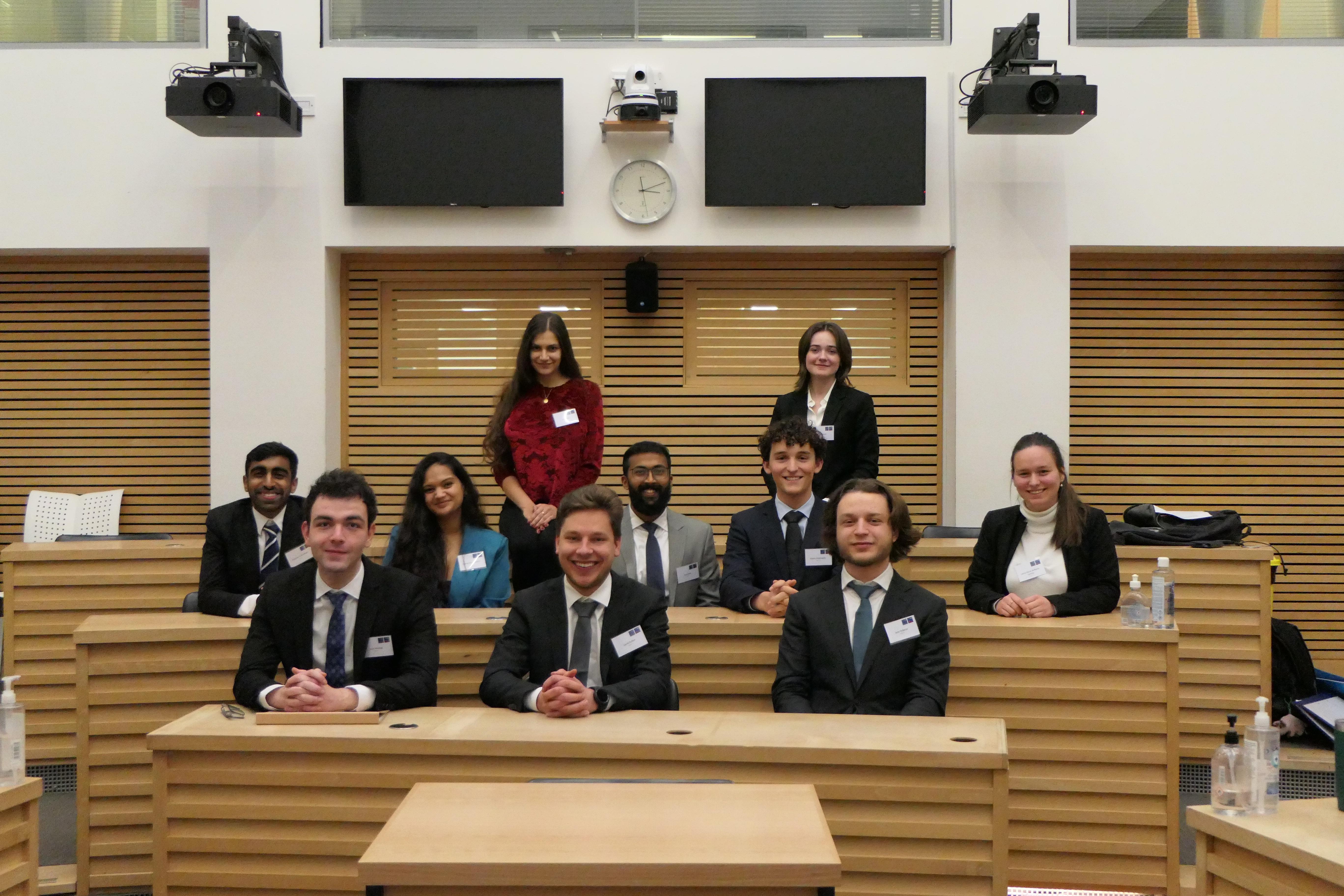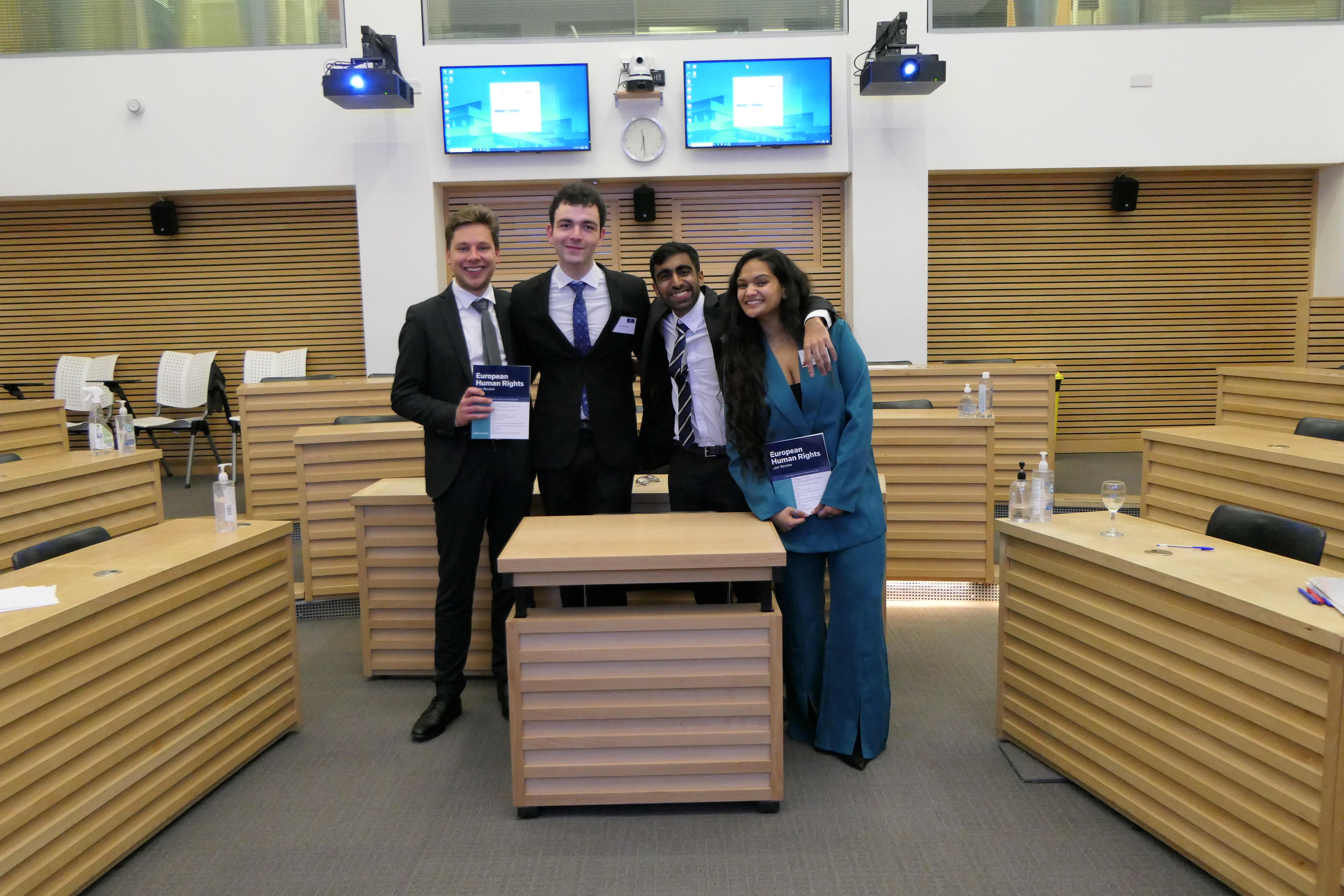Inaugural Jonathan Cooper LGBTQ+ Mooting Competition 2023 held during LGBTQ+ History Month
Associated people
The inaugural Jonathan Cooper LGBTQ+ Mooting Competition took place at the Law Faculty on 11 February and ended with a prize ceremony and drinks reception.
The Competition was the first Mooting Competition at Oxford specifically promoting the intellectual study of legal issues related to sexual orientation and gender identities. The Moot is named in honour of the late human rights activist and barrister Jonathan Cooper OBE, who passed away in September 2021. He practised at Doughty Street Chambers, particularly in the field of international human rights law, and was an inspiring advocate for LGBTQ+ rights across the world, be it for trans rights, rights of people living with HIV, or victims of conversion therapy. Jonathan Cooper OBE is also the namesake of the recently established Jonathan Cooper Chair of the History of Sexualities at Oxford’s Faculty of History, the first Chair of its kind in Oxford and in the United Kingdom.

Over the course of the day, teams mooted in two rounds for both the Appellant and the Respondent in a novel case on the right to same-sex marriage. The competition’s problem question, put together by Professor Jonathan Herring and Richard Wagenlander, focused on the constitutional interpretation of the right to marriage, the European Convention on Human Rights, and the right to private and family life. The case concerned a fictitious country in which same-sex marriage was introduced but later removed by legislation, annulling same-sex couples’ marital status and preventing them from marrying in the future.
The first round was judged by Alex Matheson, Amy Kerr and Frances Hand, DPhil Candidates in Law at the Faculty. The second round was judged by Allan Briddock (One Pump Court), Lewis Graham (Wadham College) and Max Schaefer (Brick Court Chambers). The final round was judged by Joe Middleton and Oliver Lewis from Doughty Street Chambers, and Tarunabh Khaitan, Professor of Public Law and Legal Theory and Head of Research in the Bonavero Institute of Human Rights.

Judges across all rounds commended the teams’ oral advocacy and legal arguments, noting they were taken aback by how well the teams had dealt with complex questions of human rights and constitutional law given many had not studied human rights law before. The final round was won by Luca Montag and David Zuther, who had particularly impressed with acute and persuasive responses to the judges’ challenging questions. The runners-up prize went to Shanaz Sharonsenthil and Kuberan Kumaresan who were also commended for their well-thought-out arguments, advocacy, and use of the materials.
Associate Dean for Equality, Diversity and Inclusion, Kristin van Zwieten, commented
“I was so impressed with the standard of mooting in the final. Mooters responded flexibly and thoughtfully to a series of probing questions from the bench. I know that the judges were similarly impressed”.
After announcing the first and second prizes, the event culminated in a drinks reception which provided an opportunity for students to network with practitioners and academics. Speaking at the reception, Oliver Lewis shared how Jonathan Cooper had had a profound impact on so many young lawyers and law students starting out in their legal careers, supporting them with his knowledge, endless energy and passion for human rights. We thank Kevin Childs, Jonathan’s husband, for allowing the Law Faculty to form a part in continuing his legacy in form of a moot which encourages students to engage with the legal obstacles the LGBTQ+ community faces.
We thank Richard Wagenlander for originally proposing the moot and for researching and putting together various elements of the moot together with the Law Faculty. Thanks also go to our volunteer judges: Amy Kerr (Oxford, DPhil), Frances Hand (Oxford, DPhil), Alex Matheson (Oxford DPhil), Allan Briddock (One Pump Court), Max Schaefer (Brick Court Chambers), Lewis Graham (Fellow, Wadham), Oliver Lewis (Doughty Street Chambers), Joe Middleton (Doughty Street Chambers) and Tarunabh Khaitan (Head of Research at the Bonavero Institute of Human Rights). We further thank the volunteers who helped on the day and kept time as clerks, John Croker, Alvin Lam, Grace Park, and Yi Xuan Wong. Finally, we also thank the European Human Rights Law Review, the journal of which Jonathan Cooper had been Editor, for providing judges and participants with copies of the journal’s special issue dedicated to his life and work.




